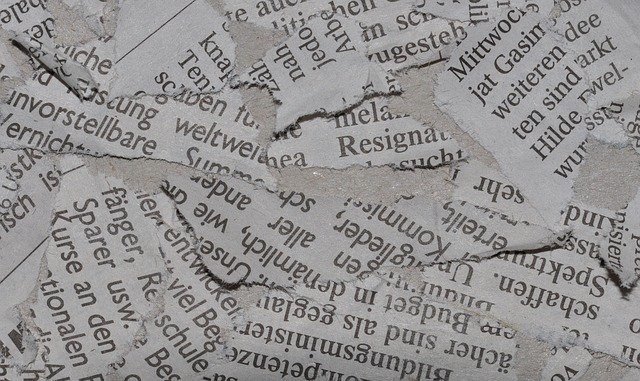
Watching television news the other night, I saw a young man boasting about the made-up junk he’d sent out on his blog, how many times it was tweeted on and out, and how much money he’d made from all of it ($8,000 for ads drawn by the eyeballs). Anyone, as we’ve learned, can peddle trash (lies is the better word) and cash in.
These days, as faith and trust fade in professional, trained, and fact-checked journalism, millions of readers now swallow distortions without question as long as they confirm a prejudice or a gut feeling or prior belief. These are hardly the solid foundations of a democratic system that might well agree about the facts, yet disagree heartily on policy. Such reflections started me thinking again about the usual apprenticeship required before taking on the name and work of journalist.
Take my case, typical for those times. I began in the age of rotary phones and 25-cent gasoline, ripping and reading AP and UPI copy, scanning the Daily Idahonian for local bulletins, checking in with Everett police, fire, hospital, etc. to gather news and interviews, then doing the same at KING Radio a year later. I was calling police and precinct locations and the fire department’s overnight switchboard, looking for information and interviews as I prepared a 15-minute newscast for Ted Bryant.
Later, working at KING-TV, I went around with tape recorder, pen and pencil and a little notebook to city hall and the county courthouse to cover local government (attending meetings, interviewing sources, getting to know staff members through coffee and chats to grow more sources). That all moved to the expanding TV newsroom, which grew from 15 minutes to an hour. I was being trained to run A and B rolls for better story-telling, how to beat deadlines, and to write with clarity and brevity, all the while being fact-checked by the experienced and sharp eye of newsroom mentor Al Wallace.
In that apprenticeship, I would no more have qualified as a journalist by merely sitting at a keyboard pounding out unverified bilge than would my dog. Yet in the age of Trump, and aided by his own disregard for fact, misinformation mushrooms, is believed, and is feasted upon by late-night comics as farce. It is no joke, but rather a profound danger to our democratic character and destiny and the future of journalism.
The New York Times asks the central question: “How can Americans find the path back to a culture of commonly accepted facts, the building blocks of democracy?”
Discover more from Post Alley
Subscribe to get the latest posts sent to your email.

This is a sad state of affairs. Untruth is unloosed upon the world and no one has the power to call it what it is, because everything is an opinion now and no one seems interested in verifying anything. What a terrifying situation.
One interesting question is whether modern journalism is a reversion to the normal situation of the 19th century, and whether the rise of “objective” journalism in the 1890s was a temporary phase, dictated by papers’ desire to reach a wider audience and satisfy advertisers. Take away department store advertising and the financial incentives fade for play-in-straight journalism. The other factor is the need to pare expenses at most papers and stations, which leads to hiring younger, less-experienced, more ideological reporters.
Killed by the internet & the 24 he. News cycle…on more than one occasion I’ve had a reporter bluntly admit: “I’m in survival mode, I’d rather be first than right!”
Not sure how you fix this…..
Mike, Do you think MSNBC, Fox, or CNN are news channels? In the Age of Trump we are more divided BUT not anymore honest in our news reporting. Case in point is KOMO’s reporting on the homelessness/drug abuse issue that grips our area, negatively responded to by our too liberal activist counsel and press corp.
Of that group, CNN comes closest, but we’re in a time when any reader/viewer must be a skeptic, watching for bias, leanings right or left or outright fantasy and falsehood.
Whether that skepticism becomes a useful filter depends on education, on a search for verifiable fact – a lot to ask now of public schools and individual citizens, but of course essential.
As an old mentor used to insist – the essential foundation of any democracy is an informed citizenry.
That KOMO doc had the addiction crisis just right, but otherwise painted with too wide a brush.
The New York Times’ question can best be answered with :”when the New York Times recommits itself and its people to objective, honest reporting”
Thank you Bob. I subscribe to the NY Times and WSJ, and many other regional newspaper. The NYT I grew up with in the 1970’s was largely honest reporting although “liberally inclined” Today I don’t read it for “news.” By comparison the WSJ, whose editorials I often disagree with, has by far the better “news.”
News coverage today isn’t what it used to be. Even when reading sources that I consider “objective,” I tend to ask, “Where are the editors?” Too much dubious and/or sloppy reporting gets passed along. Too seldom are gatekeepers (if any) asking, “How do you know that?” I resort to reading bylines and placing my trust in the handful of writers whom I’ve come to respect.
I fear I’m beginning to sound like a grumpy oldster. Thank you, Mike, for your piece: especially appreciated the contrast between then and now.